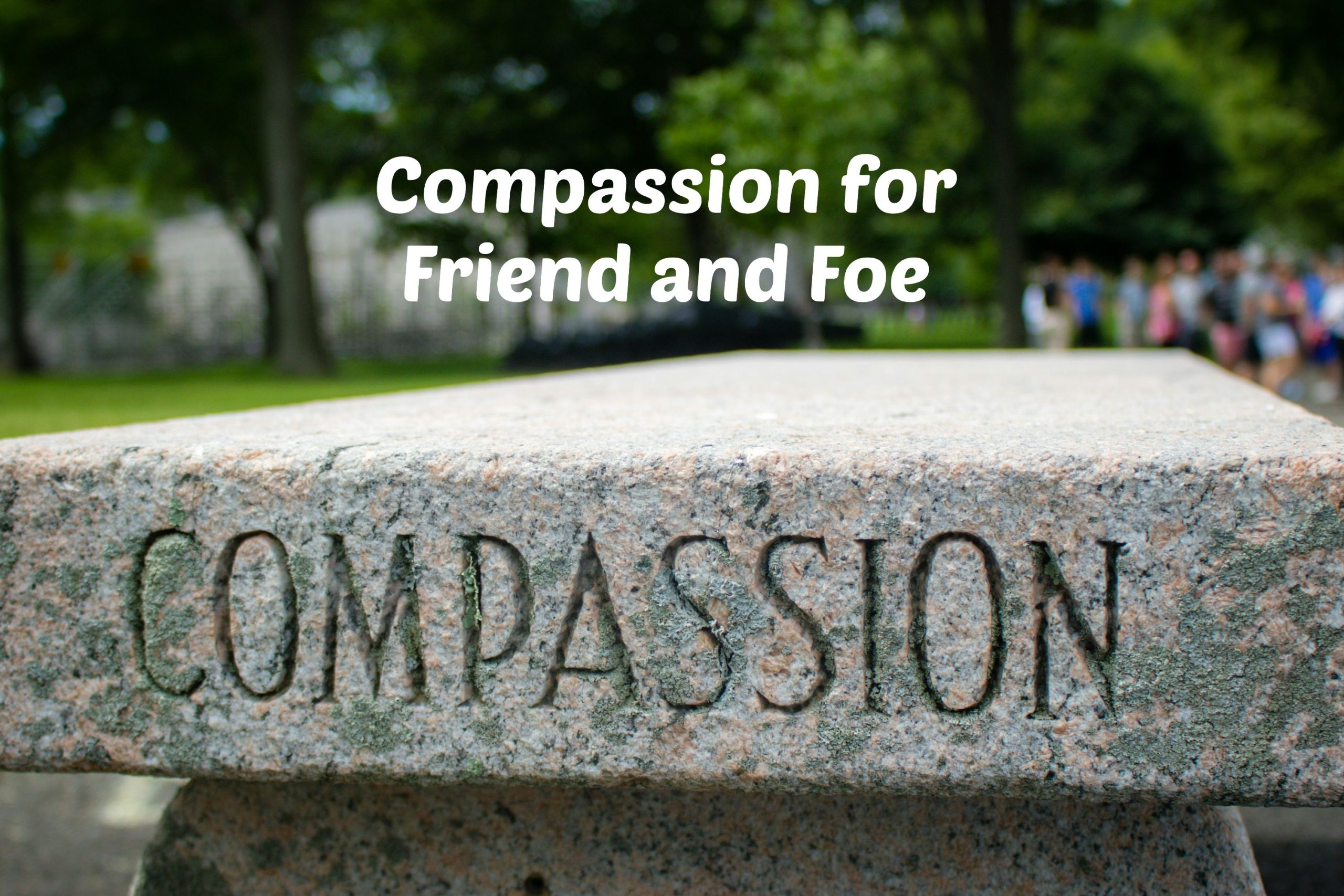Compassion for Friend and Foe
Passions are riding high these days. In many ways, our culture—especially related to politics—is at a flashpoint. The slightest spark has the potential—no, the probability—of setting a wildfire consuming everything in its path.
We make subjective determinations as to who deserves our compassion and who does not. If you agree with my values, morals, or politics, you are worthy of my compassion. If you don’t, then may God let loose His wrath on you without reservation.
We can feel morally justified in holding that position. After all, didn’t God Himself destroy Sodom and Gomorrah? Didn’t He flood the earth, sparing only one family among all of an evil humanity beyond redemption? And didn’t He instruct the ancient Israelites to conquer the Promised Land by wiping out the inhabitants?
So in the divided political climate of our nation, we rejoice when our adversary stumbles or is the target of one who is determined to take life in order to further an agenda.
How does compassion fit into this scenario?
It’s easy to have compassion for people I like or for those who agree with me. What I struggle with is having compassion for people I do not like. That’s why I can relate to the prophet Jonah, recorded in the Old Testament.
Jonah’s Problem . . . and Ours
God told Jonah to proclaim repentance to the Ninevites. Jonah had a problem with this for two reasons. First, Nineveh was the capital of Assyria, a cruel nation that consistently harassed and mistreated ancient Israel. Second, Jonah knew God is compassionate and that these same enemies would receive mercy if they listened to the call for repentance.
Jonah responded by running in the opposite direction. In fact, if you read the four chapters of his short book in the Old Testament, you’ll find he had more compassion for a wild plant than he did for a city populated by his enemies.
We will always find it easier to have compassion for the people we like, but we should not stop there. Romans 5:10 tells us God poured out His compassion on us when we were His enemies. He asks us to do the same for our foes.
Since we are recipients of God’s compassion, we cannot withhold it from others.
This doesn’t mean we should excuse evil or stop working for righteousness. But it does mean our hearts should be free from hatred, resentment, and revenge. It means we should not rejoice when our enemy stumbles, but rather offer compassion, trusting God is a good and righteous judge and evil will be dealt with in His perfect timing.
How do I know this? Because Ninevah, the city God spared for a time, eventually became the object of His wrath and destruction. The cruel and mighty Assyrian empire was ultimately replaced by a new empire: the Babylonians. But it happened in God’s timing, not Jonah’s.
With God’s help, let’s work tirelessly for what is right, regardless of political persuasion, while not neglecting compassion for “the other side,” whatever and whoever that other side is. Again, this is not a call to excuse evil. But it is about serving, volunteering, and voting with clean hands and pure hearts as we work for good while leaving judgment to the only One who can and will always judge righteously.
How can you and I demonstrate compassion today to someone who is antagonistic toward us?
* Adapted from Daily Reflections on the Names of God: A Devotional, by Ava Pennington.






0 Comments